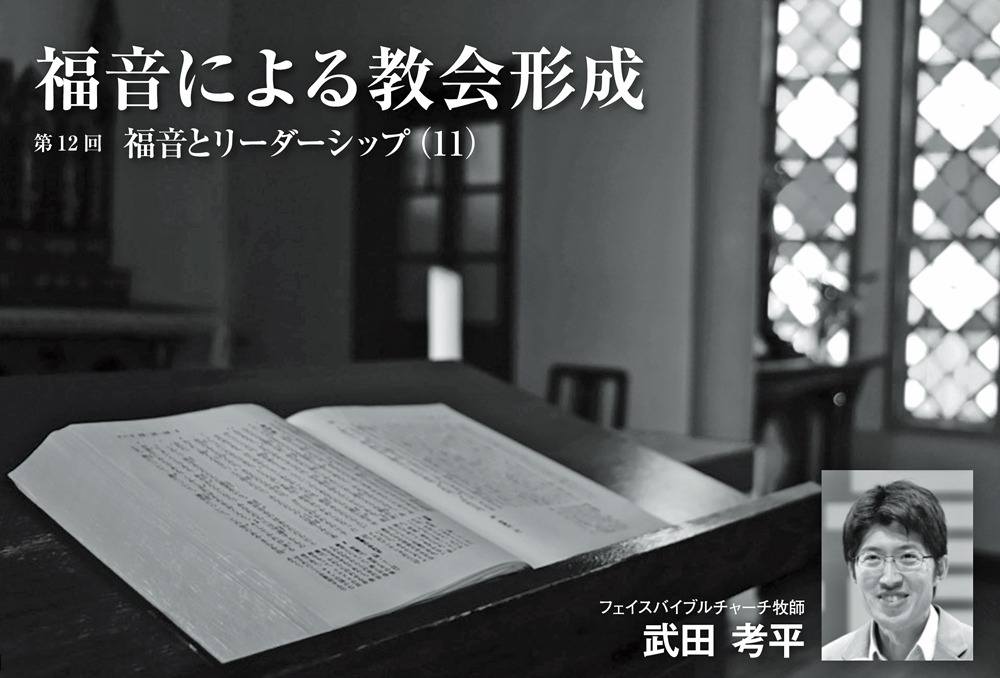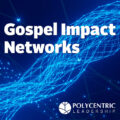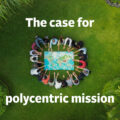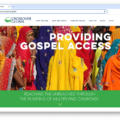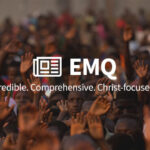#12 『Gospel and Leadership (11)』
GUEST POST BY KOHEI TAKEDA
The Worldwide Body of Christ
“Domo, domo, Takeda Sensei!”
About 10 years ago, it was less than a week after we moved to Boston, America from Tokyo, Japan, there was an American who helped our family. This was my wife’s first time living abroad and although my second time in the U.S., it had been 25 years. Moreover, this was our first time on the East Coast, and we did not know a single person in Boston. In January in Boston, the temperature drops to minus 15 degrees Celsius and there is more than a meter of snow. Without a car or furniture, we started our new life in a foreign country, not knowing where we were going or what was right and left. At that time, there was a couple who welcomed us with a big smile, even though we had never met them before. They were Dr. Doug Birdsall, a former missionary to Japan, and his wife, Jeanie. Dr. and Mrs. Birdsall have been very kind to us personally, sharing their furniture, inviting us to meals, and giving our children Christmas presents.
I am ashamed to admit that I did not know much about him at the time, but Dr. Doug was a former international president of A3 and the Lausanne Movement. It was just after the 3rd Lausanne Congress on World Evangelization (2010), which was held in Cape Town, South Africa, under his leadership.
I did not fully understand how objectionable it was in world missions. However, Dr. Birdsall did not make a big deal, and always shared many things in a friendly manner.
One day, Dr. Birdsall said something strange. He said, “I am often asked, ‘What denomination are you?’, and I answer, ‘I am Baptist, Reformed, Pentecostal, and Anglican.’”. Seeing my wondering face, he shared with me his view of church and mission, which sees the church as the “Global Body of Christ”. It was not conventional ecumenism, nor superficial unity ignoring differences in theology and tradition, but a worldview based on solid biblical and missionary grounds, the spirit of the Lausanne Movement. I felt as if scales were falling from my eyes.
Lausanne Movement
The Lausanne Movement is a world missionary network of evangelical Christians that grew out of the first Lausanne Congress on World Evangelization held in Lausanne, Switzerland, in 1974. It is a missionary movement founded by Dr. Billy Graham and born out of his friendship with Dr. John Stott. At the first Lausanne Congress, chaired by Dr. Stott, the vision of “all the world, all the churches, all the gospel” was summarized in the form of the Lausanne Covenant, which advocated comprehensive missions, including “evangelism” and “social responsibility,” while maintaining the priority of evangelism. The Lausanne Covenant has become one of the most widely used documents in the history of the modern church, and its contents have not faded away even after 50 years or so, so I recommend that those who have not read it read it at a Japanese website (search for “Lausanne Covenant”).
Later, with Doug Birdsall as International President, the third World Congress was held in Cape Town in 2010, bringing together 4,200 people from 198 countries, and connecting 100,000 Christians from 400 locations in 96 countries online as well. What was compiled there was the “Cape Town Declaration of Commitment.” As well as this, please refer to the website for more details.
Leadership and Views of Church and Mission
If you are asking why I am introducing the Lausanne Movement in this article on church formation and leadership, it is because I believe that a view of church and mission is very important in church leadership. For each pastor, when leadership is formed based on a global worldview or missionary perspective in each individual church, the Body of Christ, it makes a significant difference in local pastoral practice. Such a worldview or theology may be called the “Kingdom Mindset.”
This is the eleventh and final installment in our introduction to the Gospel and Leadership. So far, we have considered in stages the pastoral leadership that is renewed and transformed by the gospel of the cross of Christ. First, we have considered the pastor’s role (leading) through the lens of the gospel, knowing himself (the leader), and knowing the church (the object of his leading). Furthermore, we have attempted to know them “in depth” throughout their lives.
As the final step, the past few articles have focused on knowing the leadership of the incarnate (human) Jesus Christ as the way to lead the Church. In this last installment, I will present Christ’s perspective, especially His view of the church and mission, as His leadership, using that of the Lausanne Movement as an example. Nevertheless, some of you may have a different view from that of the Lausanne Movement. Of course, this is something that should be respected, and I hope to present it here as one view, without absolutizing it.
The Lausanne Movement and Leadership
First, it is important to note that Section 11 of Lausanne Pharmaceuticals summarizes “Education and Leadership” in this way (translated by me from the Lausanne Movement website), which was compiled approximately 50 years ago.
-
EDUCATION AND LEADERSHIP
We confess that we have sometimes pursued church growth at the expense of church depth, and divorced evangelism from Christian nurture. We also acknowledge that some of our missions have been too slow to equip and encourage national leaders to assume their rightful responsibilities. Yet we are committed to indigenous principles, and long that every church will have national leaders who manifest a Christian style of leadership in terms not of domination but of service. We recognize that there is a great need to improve theological education, especially for church leaders. In every nation and culture there should be an effective training programme for pastors and laity in doctrine, discipleship, evangelism, nurture and service. Such training programmes should not rely on any stereotyped methodology but should be developed by creative local initiatives according to biblical standards.
Colossians 1:27,28; Acts 14:23;
Titus 1:5,9; Mark 10:42-45;
Ephesians 4:11,12
In recent years, the leadership characteristics cherished as the spirit of the Lausanne Movement are sometimes described as “HIS,” which stands for Humility, Integrity, and Simplicity. It is an acronym for “Humility,” “Integrity,” and “Simplicity.
From this we can see that a distinctive feature of the leadership that the Lausanne Movement values is for leaders who prioritize evangelism but are also responsible for inclusive mission to see the Church, the Body of Christ, as both local and global, and to develop the humility to cooperate in mission with one another while acknowledging diversity.
In last month’s article, I touched on diversity within each individual church. However, the need to recognize diversity as the Body of Christ and to serve others who are different is not limited to “within” each individual church. When we view the church as the global body of Christ, we must also be willing to cooperate with other churches, other denominations, and churches in other countries. What is necessarily required there is “humility” to connect with and serve those who are different from oneself.
By listening to theologies, traditions, and values that are different from our own, knowing those who are different, serving those who are different, and serving in mission with those who are different, we can form the world-wide Body of Christ and carry out His work. If this is the case, what is required of pastoral leaders in particular is a heart of humility, “Do nothing from selfish ambition or conceit, but in humility count others more significant than yourselves” (Philippians 2:3).
It is the leadership of Christ that He has shown us through the Incarnation. Christ. For the sake of us human beings, who are completely different from Himself, He gave up His divine nature, emptied Himself, took the form of a servant, and demonstrated humility in obedience even unto death. This is the kind of leadership that pastors and Christian leaders who seek to build up the Body of Christ, both locally and globally, should emulate.
I believe that this kind of humility is given to us by returning to the gospel, and that a breakthrough for Japan missions will come when we set a common biblical foundation of missionary studies, accept each other for any other differences, and work together for the sake of missions. On the other hand, if we cannot serve together, we may have come to a situation where we will “fall together”.
The Real Issue
Here, I would like to consider the current situation. In the context of the pastoral care of Japanese churches, what exactly does it mean to cooperate in mission with the mindset of the global body of Christ or the mindset of the Kingdom of God? In reality, Japanese churches are small in size, and in many cases, they are single-pastorate churches that are occupied with leading their own churches. In such a situation, it is impossible to devote time and effort to cooperate with other churches, let alone other denominations or countries. Although we respect each other, it is honestly very difficult to get to know and build trust with those who think differently than we do. If that is the case, shouldn’t we focus on immediate pastoral care, evangelism, discipleship, and service? I feel that this way of thinking is very reasonable. On the other hand, if each situation becomes even more difficult, then a vicious cycle will arise, that is, the “mutual collapse” mentioned earlier, in which one will not be able to stand if one focuses only on one’s own church or denomination.
Innovation in specific missionary cooperation based on the Japanese context, which has been long overdue and is certainly a challenge for Japanese missions. There are various ideas for these, such as the use of technology, which should be discussed and tried in practice on an ongoing basis. However, there are some points to be noted in missionary cooperation.
The first is that missionary cooperation can only be united in Christ. A pastor who is creating a network of interdenominational churches throughout Japan said, “Churches cannot unite in terms of higher education,” and I feel that this is true. Diversity should be embraced when it comes to differences, whether in theology, values, or anything else that differs from the essence of the gospel.
Second, missionary cooperation does not always “the same thing done together”. In other words, sharing various God-given resources, from knowledge and information to financial ones, is also missionary cooperation. One example is the Lausanne Movement. Lausanne is unique in that it aims to connect “people and ideas” to create an environment (platform) where new ideas, connections, and systems can be organically generated.
Third, again, missionary cooperation cannot be realized without the character of Christ, which is humility. Listening to others, loving, and serving others is the most essential. Sometimes there are those who try to demonstrate leadership by absolutizing and insisting on their own “rightness,” but considering that the essence of biblical leadership is humility, it is obvious that this is not an effective means.
Up to this point, I have examined biblical leadership, using the Lausanne Movement as an example. Finally, we would like to introduce some of the future directions being discussed, especially in the aspect of leadership, in light of the 4th Lausanne International Congress on World Evangelization, which is scheduled to be held in Asia in 2024 and for which preparations are underway.
“Polycentric Mission Leadership”
One of the most recent missionary books published has been Dr. Alan Yeh’s “Polycentric Ministry,” a book that has been well-received in recent years. This book has had a great impact on those involved in the Lausanne Movement. Related to this, published in 2021, is “Polycentric Mission Leadership” by Joseph Handley, international president of the missionary organization called A3 (formerly Asian Access). This was published in Lausanne Global Analysis in May 2021, and may well become the basis for the Lausanne movement’s thinking on leadership in the future. Note that Mr. Handley is the successor of the aforementioned Doug Birdsell at A3, who until recently was based in Japan. He has been a personal friend and mentor to me in many ways.
The idea of “polycentricity” in Dr. Handley’s leadership theory is a further development of the “worldwide Body of Christ” missionary view mentioned earlier.
Simply put, the idea emphasizes that just as the Body of Christ is composed of various parts with Christ as the head, there is also multiple leadership in the local and global Body of Christ.
Just as there are many organs in one body, and not all of them have the same function, so we, who are many, are one body in Christ, and each one of us is an organ of the other (Romans 12:4-5).
In other words, church leadership is not held by a particular country, organization, church, or individual, but is carried by many and multifunctional, and complementary to each other. This is a collaborative and complementary approach to leadership. Furthermore, according to Dr. Handley, it is a trinitarian view of leadership, which argues that the realization of “polycentric missionary leadership” requires the following six aspects.
 Charisma
Charisma
This does not refer to a charismatic personality or supernatural experience, but to a charism (Χάρισμα), a gift or favor from God. As a missionary leader, whether in person or in vision, he or she must receive from God
 Collaboration
Collaboration
This includes theological and practical collegiality, which is the attitude of serving missions collaboratively as a team and not just as an individual claim.
 Communal
Communal
Leading while forming a community, which is an attitude and commitment to fellowship as brothers and sisters and to serve as the family of God. It is also not personal, but serves a common vision and mission.
 Relational
Relational
It is an attitude that values individual relationships. If the heart of Christianity is the relationship between God and neighbors, then mission is not a business and cannot proceed without personal fellowship.
 Freedom
Freedom
The fruit of the Spirit of autonomy and self-control is freedom in Christ. It is also an attitude of being able to deal appropriately with failure and risk without fear in the Lord, and accountability, a quality that manifests itself in the formulation of decision-making directions.
 Diversity
Diversity
It is the quality of being able to respect Christians belonging to different regions, networks, and cultures, and to lead them to unity in Christ. It is a gift that can lead to the unity of the Spirit, as stated in Ephesians 4, in a society that is becoming more pluralistic and diverse.
Leadership Transformed by the Gospel
In this issue of Church Formation by the Gospel, I examined the leadership of Christ, using the views of the Lausanne Movement as an example as the last of the leadership transformed by the Gospel in church formation by the Gospel.
In terms of church formation, I introduced the perspective of the formation of a world church at large, based on the formation of local churches, and the fact that this could lead to concrete missionary cooperation in the region. Of course, there are various views on the Lausanne Movement, and no one can compare it to the leadership shown by Christ.
Of course, there are many different views on the Lausanne Movement, and no one can compare it to the leadership shown by Christ.
However, it is a fact that pastors are anointed leaders to lead the church and have been given the role of leading specific church formation. It is said that biblical leadership theory and its education is still in its infancy even in the West.
However, as a person who leads daily pastoral care, I hope to continue to seek biblical, theological, and practical leadership. As we look to Jesus Christ, and with great expectation that our hearts will be renewed by the grace and promise of the gospel, we praise the name of the Lord.
Kohei Takeda
_________________________
About Pastor Kohei Takeda
 Kohei Takeda serves as Pastor of Faith Bible Church (Seattle, USA). After working in the pharmaceutical industry in Japan as an international co-developer of medical products, he has since devoted himself to ministry. Pastor Takeda studied at Gordon-Conwell Theological Seminary and Harvard University and has served in several multicultural and multilingual churches in Japan and the U.S., including megachurches and church plants. He specializes in homiletics, pastoral ministry, communication studies, and pharmacology. In addition, Pastor Takeda is Co-chair of the Lausanne Movement and East Asia Younger Leaders Gathering (YLG) Conference Preparation Committee, a board member of the East Asia YLG Movement, and the founder of the Japan YLG Conference.
Kohei Takeda serves as Pastor of Faith Bible Church (Seattle, USA). After working in the pharmaceutical industry in Japan as an international co-developer of medical products, he has since devoted himself to ministry. Pastor Takeda studied at Gordon-Conwell Theological Seminary and Harvard University and has served in several multicultural and multilingual churches in Japan and the U.S., including megachurches and church plants. He specializes in homiletics, pastoral ministry, communication studies, and pharmacology. In addition, Pastor Takeda is Co-chair of the Lausanne Movement and East Asia Younger Leaders Gathering (YLG) Conference Preparation Committee, a board member of the East Asia YLG Movement, and the founder of the Japan YLG Conference.
 Reposted with permission from the series “Build the Church by the Gospel – Gospel and Leadership (11).” published in Japanese in Fune no Migigawa (Right Side of the Boat) by Jibikiami Publishing December 2021. Translated into English by Hideko Sorimachi.
Reposted with permission from the series “Build the Church by the Gospel – Gospel and Leadership (11).” published in Japanese in Fune no Migigawa (Right Side of the Boat) by Jibikiami Publishing December 2021. Translated into English by Hideko Sorimachi.
